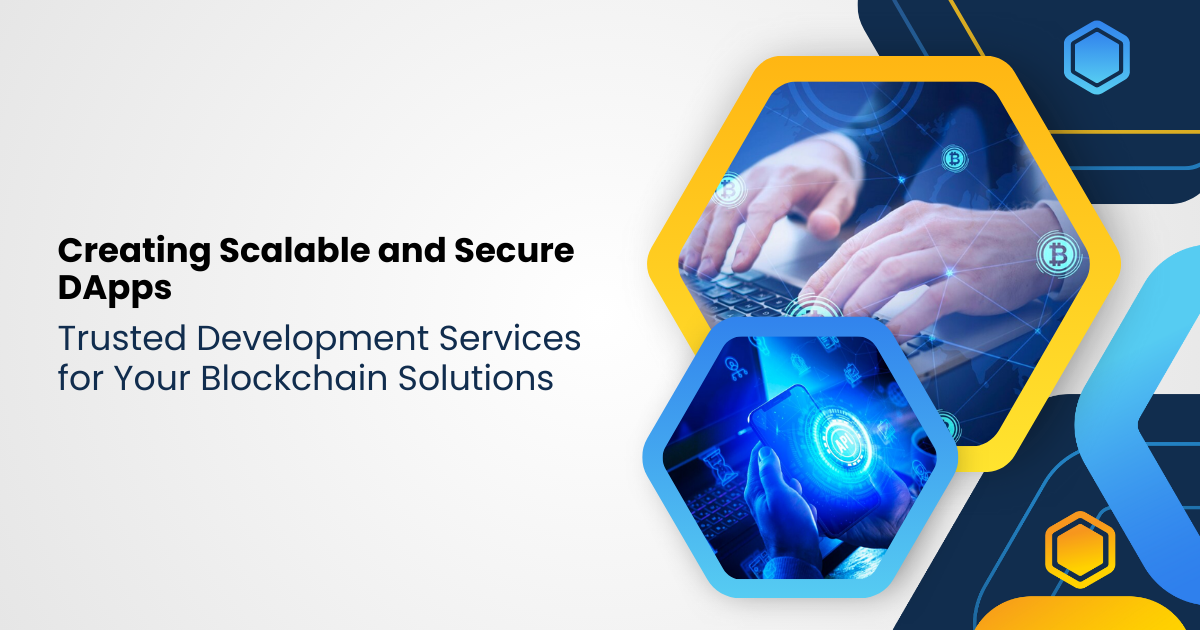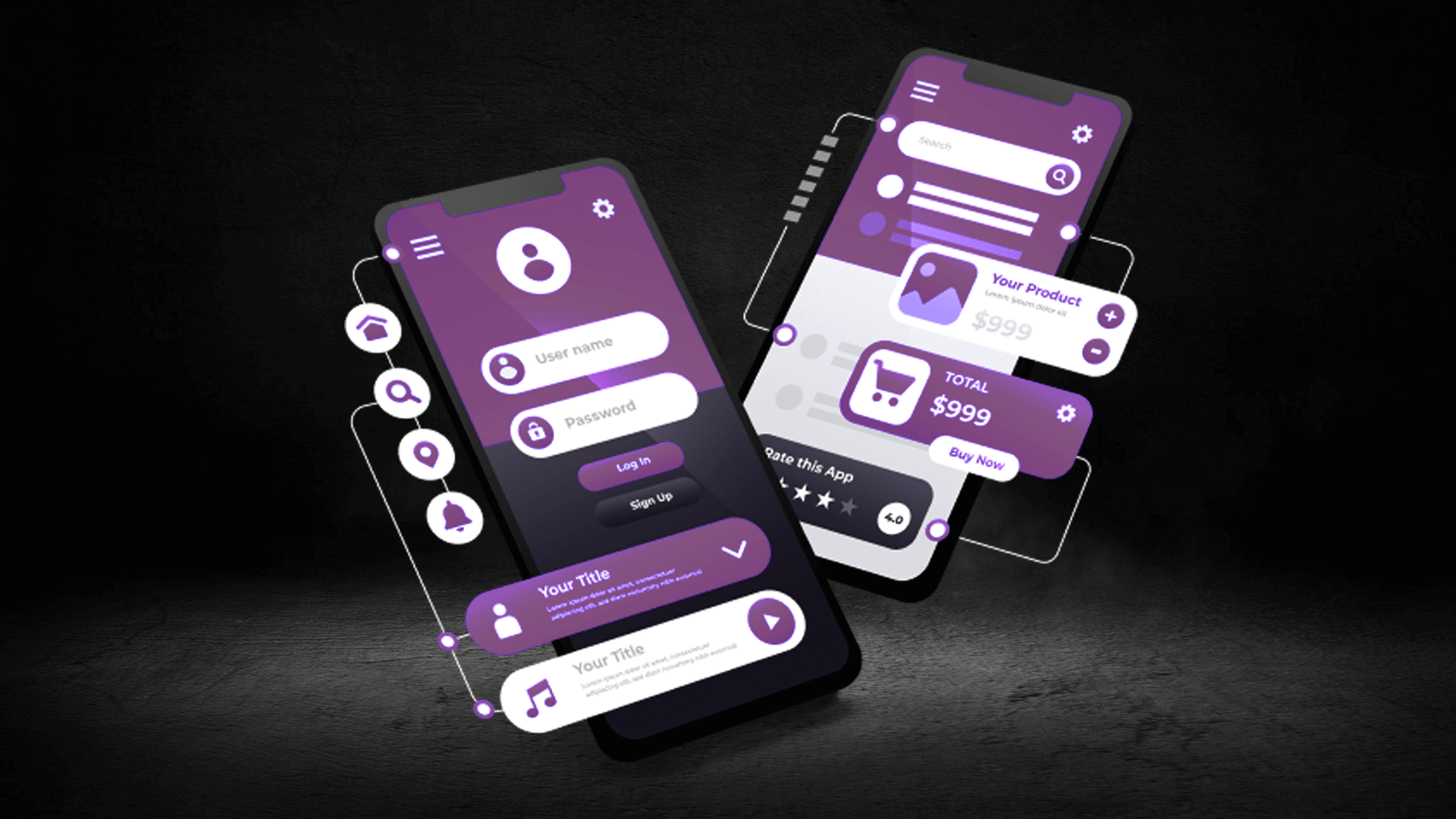Building Scalable and Secure DApps: Top Development Services You Can Trust
Recent reports project the global DApp development market to reach $368.25 billion by 2027, reflecting the growing demand for blockchain solutions. As blockchain disrupts traditional industries, DApps are becoming key in providing scalable, secure decentralized solutions. This shift gives users more control over their data and transactions, removing the need for centralized authorities. However, building DApps that are both functional and secure requires expertise, careful planning, and the right development tools.
When developing a DApp, it’s crucial to ensure it can handle many users, transactions, and complex features while maintaining strong security. This article will explore what makes a DApp scalable and secure, the challenges developers face, and the top services that can help you build DApps that grow with your business.
What Are Decentralized Applications (DApps)?
Before diving into the intricacies of scalable and secure DApps, it’s essential to understand what a DApp is. A DApp is a software application that operates on a decentralized network like a blockchain, rather than a traditional centralized server. Unlike conventional applications that rely on a central entity to manage and store data, DApps are peer-to-peer systems that utilize blockchain protocols for data management, ensuring that no single point of failure exists.
Some key characteristics of DApps include:
- Open-source code: The codebase of a DApp is typically open for anyone to view, inspect, and contribute to.
- Decentralized storage: Data is stored across multiple nodes in a blockchain network, ensuring that the application remains operational even if some nodes fail.
- Smart contracts: DApps often use smart contracts to automate and enforce business logic without the need for intermediaries.
Why Is Scalability Important for DApps?
Scalability refers to the ability of an application to handle a growing number of users, transactions, and data without compromising performance. For DApps, scalability is crucial for several reasons:
- User growth: As your DApp gains more users, the system must be able to support an increasing number of transactions and interactions without slowing down.
- Transaction volume: With more transactions occurring within the DApp, the infrastructure must be able to handle a high volume of transactions per second (TPS) without delays or failures.
- Evolving business needs: As your business evolves, so will your DApp. You need a scalable architecture to support new features, functionalities, and integrations.
The Challenge of Scalability in DApps
Blockchain networks, by nature, can struggle with scalability due to their reliance on consensus mechanisms and the need for decentralized validation of transactions. Some common scalability challenges that developers face when building DApps include:
- Throughput limitations: Traditional blockchain networks, like Bitcoin and Ethereum, face limitations in terms of transaction throughput. As more users interact with a DApp, the network may become congested, leading to slower transaction times and higher fees.
- Block size and network congestion: On many blockchain networks, the block size is limited, which can result in network congestion during periods of high activity. This can negatively impact the performance of your DApp.
- Data storage: Storing large volumes of data on the blockchain can be costly and inefficient. A scalable DApp must efficiently manage data without overwhelming the network.
Security: A Cornerstone of DApp Development
While scalability is crucial, security is equally, if not more, important when developing decentralized applications. Security concerns are often heightened in the blockchain space due to the potential for malicious attacks, vulnerabilities, and the immutable nature of blockchain data. Some common security risks for DApps include:
- Smart contract vulnerabilities: Smart contracts are self-executing agreements written in code. If there are bugs or vulnerabilities in the contract, attackers may exploit them to steal funds or manipulate the application.
- Private key management: In a decentralized system, users are responsible for managing their private keys. If a user’s private key is compromised, their funds and data are at risk.
- Sybil attacks: These attacks occur when malicious actors create multiple fake identities to gain control of the network, potentially disrupting the DApp’s functionality.
How to Ensure Security in DApps
To build a secure DApp, developers must consider several best practices:
- Audit smart contracts: Regularly audit your smart contracts to identify vulnerabilities and potential exploits.
- Private key encryption: Use encryption techniques to protect private keys and ensure that they are not stored in plain text.
- Multi-signature wallets: Implement multi-signature wallets to require multiple signatures before a transaction can be executed, adding an extra layer of security.
- Decentralized oracles: Use decentralized oracles to fetch off-chain data securely, reducing the risk of centralization.
Also Read:- https://freshvoicehub.com/professional-web-application-development-for-startups-enterprises/
Key Elements of a Scalable and Secure DApp Architecture
To build a DApp that is both scalable and secure, developers must design an architecture that accommodates both factors from the ground up. Some key elements to consider when building such an architecture include:
- Layered architecture: A layered approach allows for greater flexibility and scalability by separating different components of the DApp, such as the user interface, business logic, and blockchain interaction layer.
- Off-chain storage solutions: Rather than storing all data on-chain, consider using off-chain storage solutions like IPFS (InterPlanetary File System) or decentralized file storage systems to store large amounts of data securely and efficiently.
- State channels: State channels enable off-chain transactions between parties while ensuring that the final state is recorded on the blockchain. This can significantly reduce transaction costs and improve scalability.
- Sidechains and rollups: Sidechains and rollups are Layer 2 scaling solutions that can increase the scalability of DApps by processing transactions off the main blockchain, reducing congestion and improving performance.
Top DApp Development Services You Can Trust
Building a scalable and secure DApp requires expertise in blockchain development, smart contract programming, and security best practices. Fortunately, there are many development services available that specialize in creating high-quality DApps. Here are some of the top DApp development services you can trust:
1. Altoros
Altoros is a full-stack development firm that specializes in blockchain and DApp development. With expertise in building decentralized solutions on multiple blockchain platforms, Altoros can help businesses build secure, scalable DApps tailored to their specific needs.
2. ConsenSys
ConsenSys is a well-known Ethereum-based blockchain development company that provides a range of services, including DApp development. Their team of experts offers end-to-end development services, from blockchain infrastructure setup to building secure and scalable decentralized applications.
3. OpenZeppelin
OpenZeppelin is a trusted name in the smart contract development community, known for its open-source libraries and secure development frameworks. Their development services focus on building secure, high-performance smart contracts for DApps, making them an excellent choice for developers looking to build secure and scalable applications.
4. Blockchain App Factory
Blockchain App Factory offers comprehensive blockchain development services, specializing in custom DApp development, smart contract audits, and blockchain consulting. Their team of experts helps businesses create scalable and secure DApps that are optimized for performance and security.
5. Zco Corporation
Zco Corporation is a leading software development company that offers blockchain development services for building secure and scalable DApps. They specialize in Ethereum, Hyperledger, and Solidity development, ensuring that their DApps are built with the latest tools and technologies.
Conclusion
Building a scalable and secure DApp is no small feat, but with the right development services and a focus on key principles like scalability, security, and decentralized architecture, it’s entirely achievable. Whether you’re building a decentralized finance (DeFi) platform, a supply chain solution, or a gaming application, ensuring that your DApp can handle growth while keeping data and transactions secure is crucial for long-term success.
By leveraging the expertise of trusted DApp development services, you can bring your decentralized vision to life and create an application that not only performs well but also stands the test of time. Remember, in the world of blockchain, scalability and security are non-negotiable, and building a DApp with these factors in mind will set you on the path to success.














Post Comment